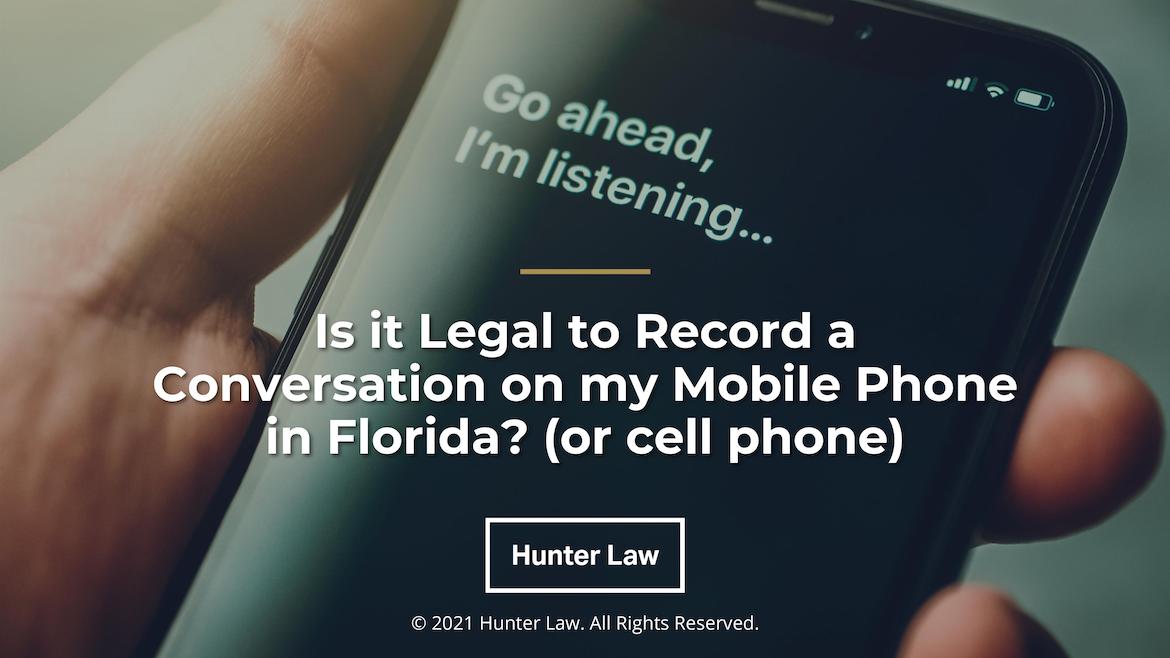Find out the information you need about Can I Record A Conversation If I Feel Threatened in this article, all summarized clearly by us.

Can I Record a Conversation if I Feel Threatened?
Conversations are an integral part of our daily lives, whether they are held in person, over the phone, or through video conferencing. However, there are times when these conversations can take a turn for the worse, leaving one party feeling threatened or in danger. In such situations, it is natural to wonder if you have the right to record the conversation for evidence or protection. In this article, we will explore the legal and ethical considerations surrounding the recording of conversations, particularly when you feel threatened.
Whether or not you can legally record a conversation depends on the laws of the state or country where the conversation takes place. In most jurisdictions, there are two main types of recording laws: one-party consent laws and two-party consent laws. One-party consent laws allow you to record a conversation if you are a participant in the conversation, even without the knowledge or consent of the other party. Two-party consent laws, on the other hand, require the consent of all parties involved in the conversation before it can be recorded.
When is it Legal to Record a Conversation?
In the United States, most states have one-party consent laws, which means that you can legally record a conversation if you are a participant in the conversation. There are some exceptions to this rule, however. For example, it is illegal to record a conversation if you are doing so for the purpose of committing a crime or if you are intercepting a wire, oral, or electronic communication.
What if the Conversation is Threatening?
If you feel threatened during a conversation, you may be wondering if you can record the conversation for evidence or protection. In most states, it is legal to record a conversation if you are a participant in the conversation, even if the conversation is threatening. However, it is important to check the laws of your state to be sure.
If you are in a situation where you feel threatened, it is important to prioritize your safety. If possible, try to leave the conversation and go to a safe place. If you are unable to leave, you may want to consider recording the conversation for evidence or protection. However, it is important to weigh the risks and benefits of recording the conversation before doing so. If you are not sure whether or not it is legal to record the conversation, it is best to err on the side of caution and not record it.
Tips and Expert Advice
If you are considering recording a conversation, there are a few things you should keep in mind.
- Make sure you are in a safe place. If you feel threatened, it is important to prioritize your safety. If possible, try to leave the conversation and go to a safe place.
- Tell the other party that you are recording the conversation. In some states, it is required to tell the other party that you are recording the conversation. Even if it is not required, it is generally a good idea to do so.
- Only record the conversation if it is necessary. Recording a conversation can be a sensitive matter. Only do so if it is necessary for evidence or protection.
- Store the recording in a safe place. Once you have recorded the conversation, it is important to store it in a safe place where it will not be lost or stolen.
FAQ
Q: Is it legal to record a conversation if I am not a participant in the conversation?
A: No, it is not legal to record a conversation if you are not a participant in the conversation. This is considered eavesdropping and is illegal in most states.
Q: Is it legal to record a conversation if I am in a public place?
A: Yes, it is legal to record a conversation if you are in a public place. However, you should be aware of the laws in your state regarding the recording of conversations.
Q: What should I do if I feel threatened during a conversation?
A: If you feel threatened during a conversation, try to leave the conversation and go to a safe place. If possible, try to record the conversation for evidence or protection. However, it is important to weigh the risks and benefits of recording the conversation before doing so.
Conclusion
Recording a conversation can be a useful way to protect yourself in the event of a threat. However, it is important to be aware of the laws in your jurisdiction regarding the recording of conversations. If you are not sure whether or not it is legal to record a conversation, it is best to err on the side of caution and not record it.
Are you interested in learning more about the legal and ethical considerations surrounding the recording of conversations? Leave a comment below and I’ll be happy to answer your questions.

Image: www.reddit.com
Thank you for reading Can I Record A Conversation If I Feel Threatened on our site. We hope you find this article beneficial.